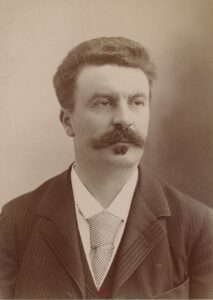Portuguese short stories – Learning Portuguese through English
Akbar and Birbal – O fazendeiro e o seu poço
Once upon a time, there was a farmer who wanted to water his crops. Since the river was far away, he wanted to buy a well. There was a rich man who owned a well.
TranslateEra uma vez um fazendeiro que queria regar as suas plantações. Como o rio ficava longe, ele queria comprar um poço. Havia um homem rico que possuía um poço.
The farmer purchased the well from the rich man for a price of 5 silver coins. The rich man was very cunning and wanted to cheat the farmer. He wanted to earn more money.
TranslateO fazendeiro comprou o poço do homem rico pelo preço de 5 moedas de prata. O homem rico era muito astuto e queria enganar o fazendeiro. Ele queria ganhar mais dinheiro.
The next day, the farmer went to the well with a bucket to draw water from the well. The rich man was standing outside the well and was smiling broadly.
TranslateNo dia seguinte, o fazendeiro foi até o poço com um balde para tirar água do poço. O homem rico estava parado do lado de fora do poço e sorria abertamente.
The rich man said, “I have sold you only the well and not the water. If you want to take water from the well, you must pay me one silver coin every week.”
TranslateO homem rico disse: “Eu vendi-lhe apenas o poço e não a água. Se quiser tirar água do poço, deve pagar-me uma moeda de prata por semana. ”
The poor man tried to argue but the rich man refused to listen. The rich man had many servants and the poor man could not fight the rich man for the water.
TranslateO pobre tentou argumentar, mas o rico recusou-se a ouvir. O rico tinha muitos servos e o pobre não podia lutar com o rico pela água.
Not knowing what to do, the poor man began to cry. His neighbour saw him and said, “My dear friend, go to King Akbar and ask for justice. King Akbar is a great king and he shall help you.”
TranslateSem saber o que fazer, o pobre homem começou a chorar. O seu vizinho o viu e disse: “O meu caro amigo, vá ao rei Akbar e peça justiça. O Rei Akbar é um grande rei e ele deve ajudá-lo. ”
The poor man went to the king and complained about the rich man. Akbar listened patiently and looked at his minister Birbal.
Birbal said, “My Lord, I shall take care of this. I shall go and pay a visit to this man.”
TranslateO pobre foi ao rei e reclamou do rico. Akbar ouviu pacientemente e olhou para o seu ministro Birbal.
Birbal disse: “O meu Senhor, eu cuidarei disso. Eu devo ir e fazer uma visita a este homem. “
Birbal was a very famous minster who was known for his intelligence and wit. He went with the farmer to the rich man’s house.
TranslateBirbal foi um ministro muito famoso, conhecido por sua inteligência e sagacidade. Ele foi com o fazendeiro até a casa do homem rico.
The rich man laughed and explained to Birbal, “Dear Birbal. I have only sold the well and not the water. If I sell a pot, should I also give away whatever is inside? That is not fair”
TranslateO homem rico riu e explicou a Birbal: “Querido Birbal. Só vendi o poço e não a água. Se eu vender um pote, devo também dar o que está dentro? Isso não é justo”
Birbal said, “You are absolutely right. Does the water belong to you?”
The rich man said, “Of course it does.”
TranslateBirbal disse: “Está absolutamente certo. A água pertence a você? “
O homem rico disse: “Claro que sim.”
Birbal said, “Then your water is occupying the well belonging to the farmer. You must pay him 2 silver coins weekly as rent.”
TranslateBirbal disse: “Então a sua água está a ocupar o poço que pertence ao fazendeiro. Deve pagar-lhe a ele 2 moedas de prata por semana como alugueis. ”
The rich man realized that he could not cheat the farmer anymore. He apologized to the farmer and to Birbal. He also paid the farmer 1 silver coin as a penalty.
TranslateO homem rico percebeu que não poderia mais enganar o fazendeiro. Ele desculpou-se com o fazendeiro e com Birbal. Ele também pagou ao fazendeiro 1 moeda de prata como penalidade.
Moral: “Ability proves itself by deeds.”
TranslateMoral: “A habilidade se prova por ações.”
Hope you had fun learning the Portuguese language through short stories 🙂 If so leave a comment!!!
For more languages:
Learn German through Short stories: https://childhood-stories.com/German
Learn Spanish through Short stories: https://childhood-stories.com/Spanish
Learn Italian through Short stories: https://childhood-stories.com/Italian
Learn Dutch through Short stories: https://childhood-stories.com/Dutch
Learn French through Short stories: https://childhood-stories.com/French
Learn Portuguese through Short stories: https://childhood-stories.com/Portuguese
Learn Portuguese through Short stories: https://childhood-stories.com/English
About: Studying through Dual Language immersion is among the best techniques for learning a new language. The objective of this website is to teach yourself how to read and speak Portuguese confidently using English as a base 🙂
These Portuguese short stories are super cool to read for beginners and also for entertaining children. Akbar and Birbal is among the best stories that can be studied on a daily basis.




